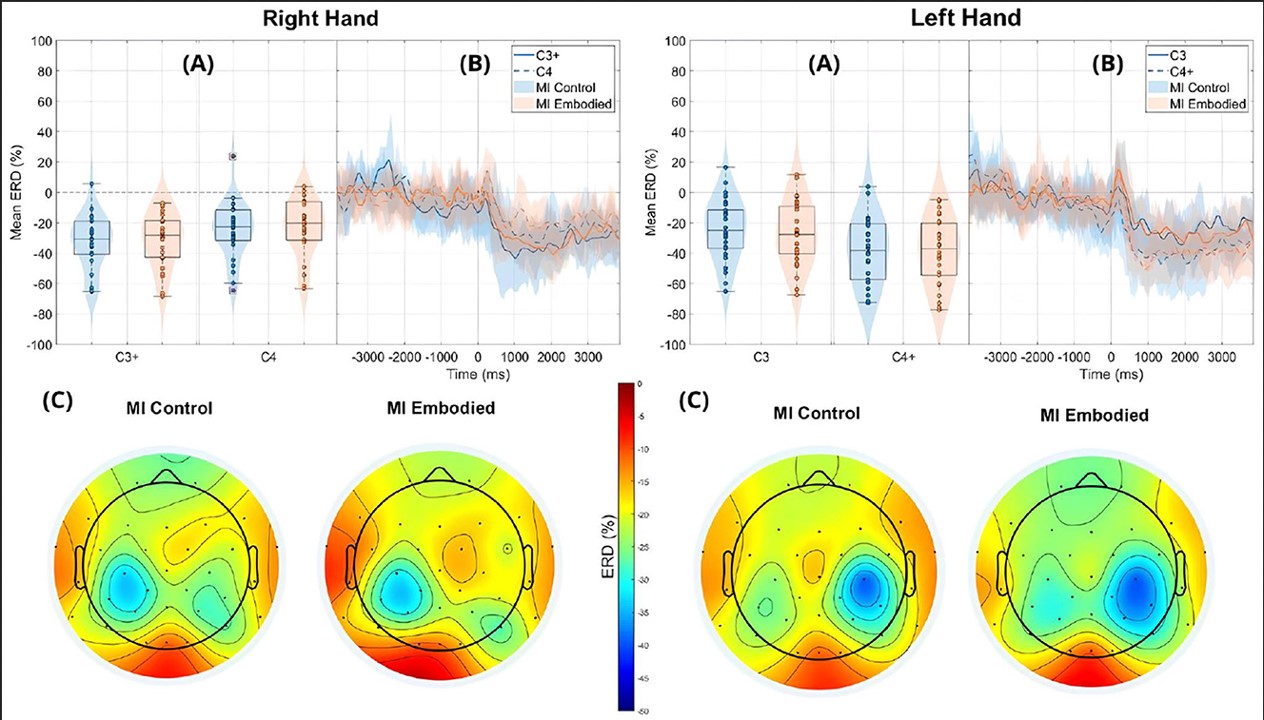When embodiment matters most: a confirmatory study on VR priming in motor imagery brain-computer interfaces training

Virtual Reality (VR) feedback is increasingly integrated into Brain-Computer Interface (BCI) applications, enhancing the Sense of Embodiment (SoE) toward virtual avatars and fostering more vivid motor imagery (MI). VR-based MI-BCIs hold promise for motor rehabilitation, but their effectiveness depends on neurofeedback quality. Although SoE may enhance MI training, its role as a priming strategy prior to VR-BCI has not been systematically examined, as prior work assessed embodiment only after interaction. This study investigates whether embodiment priming influences MI-BCI outcomes, focusing on event-related desynchronization (ERD) and BCI performance. See more.
